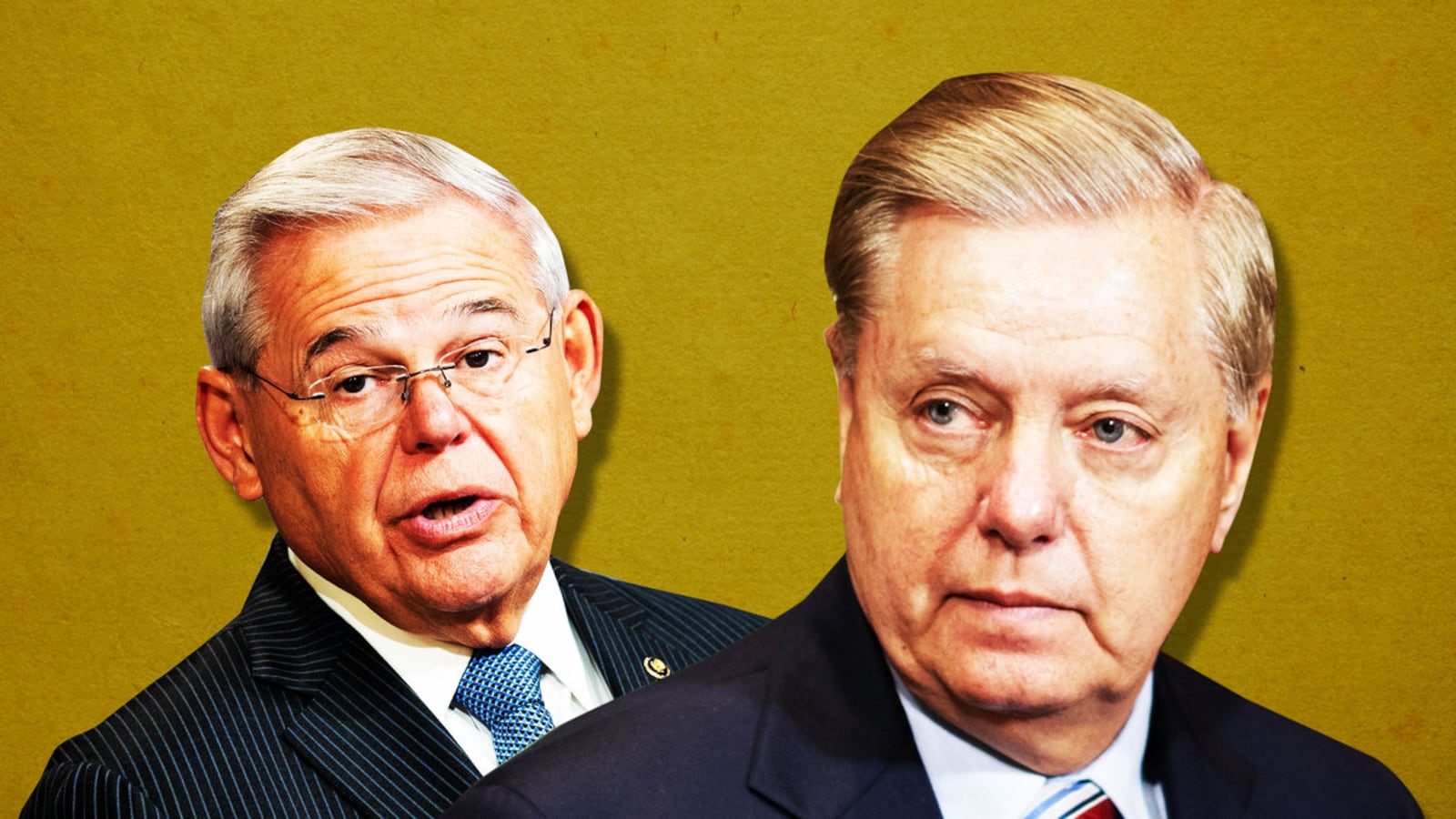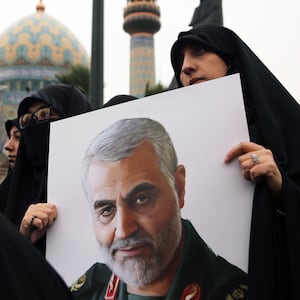Sen. Bob Menendez (D-NJ) and Sen. Lindsey Graham (R-SC) have teamed up to work on drafting potential contours for negotiations with Tehran over the country’s nuclear programming and a roadmap for a new deal, according to Graham and two other congressional aides familiar with the matter.
“I’ve been working with Senator Menendez on this for some time,” Graham told The Daily Beast in an interview last week. “We need a new way forward. And I’ve been trying to think of alternatives.”
Graham told The Daily Beast in an interview in August that he was working with senior Trump administration officials on an alternative to the Obama-era Iran nuclear deal. Part of that effort included fielding ideas from outside actors, including foreign officials. Since then, Graham has met with Menendez—although only a few times—on how to kickstart a bipartisan congressional effort to reform the administration’s Iran policy.
According to sources individuals familiar with the Graham-Menendez partnership, the two senators have largely talked about constructing an actionable plan to present to other lawmakers and to the White House. But the two sides have yet to agree on exactly how to get the ball rolling, according to those sources. One individual said Menendez wanted to work with Graham because the South Carolina lawmaker had gained the president’s ear on Iran over the last year.
Although the duo has spoken about teaming up for some time, sources say the lawmakers are focused now more than ever on crafting a new deal following the killing of Iran’s top military leader, Qassem Soleimani.
Following the strike, Democrats in the Senate, including Menendez, called out senior officials in the Trump administration for not offering proper intelligence briefings to Congress on what led to the strike. Menendez told MSNBC earlier this month that the administration suggested in briefings there was an imminent threat to American interests but that there was “no clear definition of what they consider imminent.”
The senator also called on the administration to declassify the official notification provided to Congress about the Soleimani strike.
Graham, on the other hand, applauded President Trump and told The Daily Beast that the administration should continue to keep the military option on the table if Iran were to continue to threaten American interests in the Middle East. Graham suggested the U.S. strike Iranian oil assets in the country, pointing to refineries in particular. Menendez, on the other hand, has urged the administration to up its diplomatic outreach following the strike rather than continue to rely on its military might.
Despite their division on Trump’s decision to strike Soleimani, both lawmakers opposed the Obama administration’s 2015 nuclear deal with Tehran.
“I have looked into my own soul, and my devotion to principle may once again lead me to an unpopular course, but if Iran is to acquire a nuclear bomb, it will not have my name on it,” Menendez said in a 2015 speech. “It is for these reasons that I will vote to disapprove the agreement and, if called upon, would vote to override a veto.”
At the time of the deal’s proposal in 2015, Menendez advocated that the Obama administration continue to levy sanctions on Iran in order to change Tehran’s behavior and keep it from eventually obtaining a nuclear weapon.
Although Graham’s and Menendez’s public statements on Iran have varied, both lawmakers seem to agree on one point: The Trump administration’s strategy isn’t working.
Since Trump took office, Menendez has criticized the Trump administration’s Iran strategy as only emboldening Tehran. And while Graham tends to support Trump publicly, the South Carolina lawmaker has been openly critical of how the White House responds to Iran’s malign activities in the region.
In a recent interview with The Daily Beast, Graham said the Trump administration’s maximum pressure campaign—meant to cripple Iran’s economy with sanctions—was working but needed to be harsher and combined with military deterrence.
Before the Soleimani strike, Iran policy experts, some of whom worked with the Obama administration, said Tehran would not engage in talks about a revised nuclear deal unless the U.S. rolled back at least some of its sanctions on the country. Now those experts say Tehran, having rolled back its commitments under the former deal, is not likely to engage in any meaningful conversation with the U.S. on nuclear power, at least in the short term.
Meanwhile, two officials in the Treasury Department say their unit is continuously drawing up additional sanctions for Iran on the chance Trump wants to hit the country with additional punishments in the near future.






